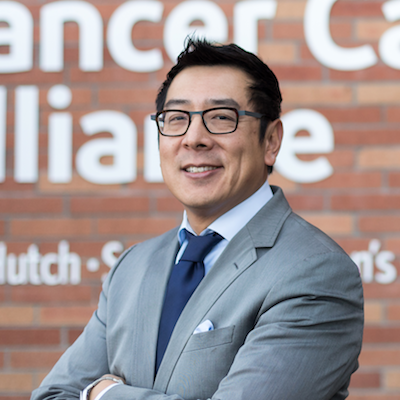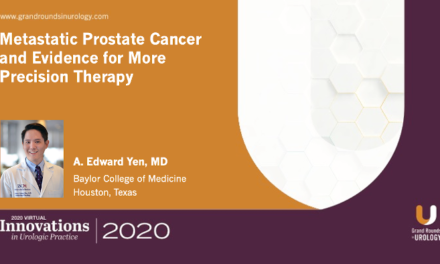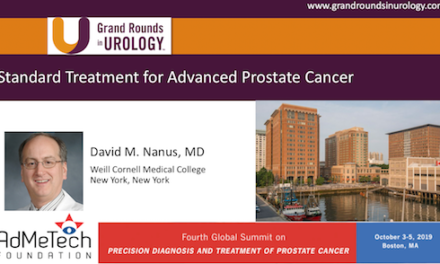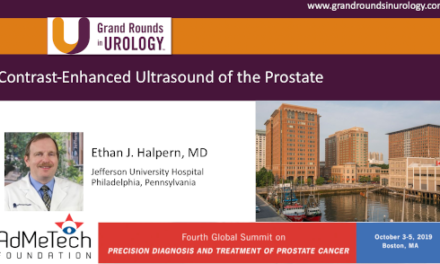- The current status of health care economics is unsustainable for the nation and a transition to value-based care is both desirable and inevitable. During this transition, it is imperative that we as urologists remain actively engaged with regulatory and legislative bodies to both educate ourselves and advocate for our patients so that the resources necessary to diagnose, treat, and research new therapies for patients with genitourinary disease are appropriately allocated.
- We need to continue to find ways to utilize advanced practice providers (APPs) and provide a team-based approach to urological care, especially to extend access to care and improve efficiency.
- Next Generation Imaging (NGI) using positron-emission tomography (PET) for the detection of metastatic disease undoubtedly performs better than conventional imaging. Future directions need to focus on multidisciplinary investigation of the impact on outcomes in order to identify the appropriate test in a specific clinical situation that will lead to the greatest clinical value.
- Future clinical studies should strive to incorporate advanced image and data analytic tools in various clinical settings, including treatment response.
- Therapeutic radio-pharmaceuticals, such as radium-223 and prostate-specific membrane antigen (PSMA) targeted agents, will serve an important role in the treatment of advanced prostate cancer patients.
Evan Y. Yu, MD
University of Washington
Seattle, Washington
ABOUT THE AUTHOR
Evan Y. Yu, MD, is a medical oncologist specializing in prostate, bladder, and testicular cancer treatment and research. He graduated Alpha Omega Alpha from the University of Washington School of Medicine. He completed internal medicine residency at the Brigham and Women’s Hospital and oncology fellowship and post-doctoral training at the Dana-Farber Cancer Institute. He returned to Seattle at the end of 2004 to join the faculty at the University of Washington and Fred Hutchinson Cancer Research Center. He now is a Full Professor, the Clinical Research Director for GU malignancies, Core Director for the Pacific Northwest Prostate Cancer SPORE and co-PI of the DoD Prostate Cancer Clinical Trials Consortium at his institution. His research focuses on testing the next wave of novel molecular targeted therapies and immunotherapy techniques, with a complementary focus on imaging biomarkers. In addition to an active clinical and research practice, he also is the Medical Director for Clinical Research Services at the Fred Hutchinson Cancer Consortium. He served as a Hematology/Oncology Fellowship Program Director for a decade at the Fred Hutchinson Cancer Research Center. He has regularly been voted a “Top Doctor” by Castle Connolly, U.S. News and World Report, Seattle magazine, and Seattle Met magazine. He has served for many years on the National Cancer Institute Genitourinary Cancers Steering Committee and is newly appointed as the Co-Chair for the National Cancer Institute Prostate Cancer Task Force. He remains active in SWOG and he also serves as an editor for Clinical Cancer Research, Clinical Genitourinary Cancer, and Uro-Today.





